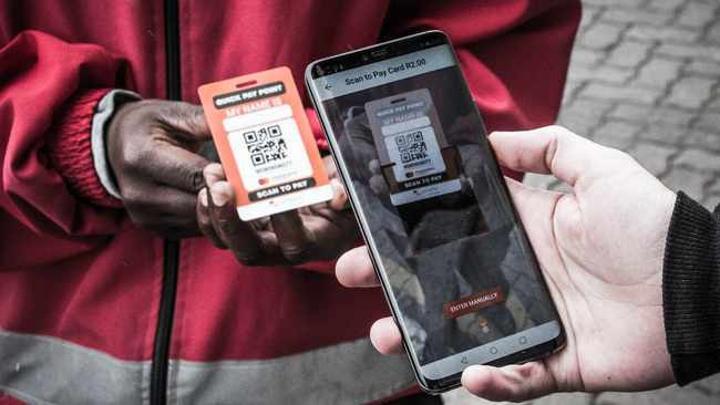Africa-Press – Liberia. Mobile transacting is fast becoming the golden egg of financial services – and nowhere more so than in Africa. According to the Global System for Mobile Communications’ (GSMA) 2021 State of the Industry Report on Mobile Money, the number of registered mobile money accounts grew by 12.7% globally in 2021 to 1.21 billion accounts – double the forecasted growth rate. Sub-Saharan Africa makes up the biggest slice of this pie on all fronts – number of accounts (548 million of the 1.2 billion accounts), transaction volume (27.4 billion of the 41.4 billion transactions) and transaction value, $490 billion ( R7.3 trillion) of the $767 billion worldwide.
Clearly, the continent is leading the charge when it comes to transacting via mobile phones. The why Bank branch coverage in Africa is by far the lowest in the world, according to a McKinsey Global Banking report from 2018. There are just five branches per 100,000 adults compared to 13 for every 100,000 in emerging Asia and 17 in Latin America or the Middle East.
Though some countries have a relatively high number of banked individuals, cash continues to rule. In 2015, the same year that South Africa saw a jump in its banked population to 77% (up from 63% in 2011), cash transactions still accounted for more than 50% of the total value of all consumer transactions, according to a Mastercard study, driven in large part by the informal economy.
But the pandemic started changing the way people prefer to transact. And in Africa, it makes sense that this shift is mobile-driven payments. Access to traditional financial services and computers might be low in many populations, but mobile penetration is high – over 90% of South Africans had a smartphone in 2020. On top of that, mobile transactions face less regulation and associated costs than traditional banking.
With less red tape and more convenience, speed, and safety, it’s easy to see why the continent is transacting via mobile like never before. The how Small to medium businesses make up around 90% of all businesses in sub-Saharan Africa, and a large chunk of them traditionally operate on a cash-only basis. It is, therefore, not a surprise that they’re fast adopters of digital payments.
Small businesses don’t necessarily have access to the IT expertise needed to set up digital point of sale (POS) solutions, never mind the cost and barriers to entry. However, mobile POS solutions using USSD (messaging payment solutions), QR code payments, and PWAs (progressive web apps) allow feature phones to have similar functionality to apps on smartphones. This is changing the way merchants conclude transactions.
Those who haven’t participated in formal banking are finally able to build up a financial track record, giving them access to loans and other financial services.
Importantly, it’s also much safer than keeping cash on hand. For the consumer, quick, convenient, contact-less payment options are fast becoming the preferred method of payment.
In the world of mobile money, there are no branches and no infrastructure, while new functionality allows them to pay without even leaving their favourite app. Even internet banking has more functionality on mobile than on its desktop counterpart.
The GSMA report also highlights that international diaspora are adopting mobile payment methods in their droves. International remittances processed via mobile money had increased by 65% in 2020 to over $1 billion in value. The future
The next big wave will be in the form of chat banking services, allowing users to bank and transact on their favourite chat platforms. By saving their banks contact number on platforms like WhatsApp, they can ‘chat’ with the bank to view balances, pay recipients, top-up accounts, and so much more – all in the form of a conversation, but with the functionality of internet banking.
Banks are already partnering with fintech enablers such as Ukheshe to bring this service to market and become players in the mobile network operator space. Ukheshe’s Eclipse platform runs open-loop payment systems, compared to mobile network operators’ closed-loop payment systems. This functionality allows banks to diversify their offering to clients, while for fintechs, it helps them get to market faster than ever before.
Ultimately though, for consumers, it means more choice and accessibility. Most importantly, these technologies demonstrate that true financial inclusion is not a pipe dream but a reality that’s already improving livelihoods in emerging markets.
For More News And Analysis About Liberia Follow Africa-Press






